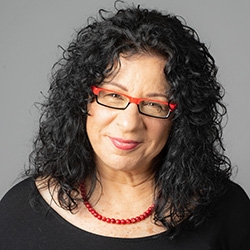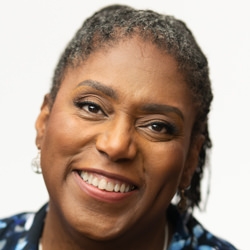

Search Results: connection
-
Love keeps the thread of connection intact in times when all around us we see the human fabric becoming threadbare. When we dig deep with love into guessing what others care about that had given rise to their actions, it changes us. It brings us closer to understanding the incomprehensible -- and closer to vision, imagination, humility, curiosity, commonality, and loving action. Read on for more on applying this to people we deem "conspiracy theorists", and those who are on the other end of the political divide.
-
When asking for respect it helps to first get clear about your interpretations of other's behavior. You can do this by asking about the other's intentions before believing your thoughts. You can also make a clear request for what specifically you want to see happen instead. Read on for more.
-
How The Work from Byron Katie connects to the observation step of the NVC process.
-
When people get hurt or harmed, how can we restore trust, safety and connection in the community? A restorative approach which focuses on who got hurt and how can we restore it? Rather than whose fault is it and how can we punish them?
-
Have you ever used the phrase "it was just a miscommunication."? We're often good at identifying when communication breaks down but not so good at finding out what went wrong and how we can improve. In this NVC Life Hack, we take a look at different types of communication requests and how they play out in a role play.
-
Without self-acceptance any attempt at growth and transformation, even while parenting, can easily become a path to self-judgments and another yardstick against which to measure ourselves as falling short. Instead, we can practice 1 minute a day or more, or while doing other tasks, to develop the self-compassion and self-acceptance needed to grow both new habits and our capacity to meet our children with calm and compassion.
-
How to stay present in the conversation in the face of strong anger.
-
When you don't have a sense of being heard you can apply skills to help you can interrupt cycles of reactivity and resentment, and create connection. Let's look at six ways that will support you in being heard. These are clarity about the topic and needs; supportive conditions; respect for autonomy; sharing your intention; attending to emotional security; and making clear requests.
-
Responding to your own reactivity is an inside job. Robert reveals how your reactions are often a secondary reaction to a triggering stimulus, and that accepting responsibility for your reactions can lead to less blame and more inner peace.
-
When we care about our cause and want to mitigate disaster, we may become reactive. However, transformation comes through connection, rather than convincing, judging, criticising, controlling, and making demands of others. To inspire change, get curious about how they relate to the topic – and get support for yourself elsewhere to process grief, become more present and compassionate, speak self-responsibly, and make requests.
-
Often, honoring someone’s choice supports more connection. Thus, checking in with someone’s choice to listen or not (offering autonomy) sets the stage for being heard more fully. On the other hand, when someone has the perception that you are talking to them without considering their choice, resentful listening might result. Here are ways to mindfully check in about choiceful listening before starting a conversation.
-
See how to better connect with children’s needs, especially when they resist or react to requests.
-
Roxy Manning discusses the connection between the challenges parents face with their children and the qualities they want them to develop. She highlights the importance of aligning actions with desired outcomes, using the example that if parents value independence, they should encourage choice rather than demanding compliance. She encourages parents to consider the long-term impact of their parenting choices on shaping their children's future behavior.
-
Join Dian Killian as she reframes the 4 steps of NVC (observations, feelings, needs, requests) into everyday words you might hear at work.
-
In a world facing crisis and deep divides, there's a need for empathic community and connection. Here we reflect upon the importance of empathy, consciousness, and building a sense of community to address complex challenges and promote well-being. Slowing down, engaging in empathic conversations, and committing to a practice of empathy and mindfulness could be essential for personal and societal transformation.
-
The human needs that we all share are the foundation of the Nonviolent Communication (NVC) process because it is in connecting to needs that we find inner freedom, empowerment and compassion.
-
Criticism often triggers defensiveness, yet it can offer a chance to foster clarity and connection. It can be helpful to replace vague or negative "don't" requests (eg. “don’t criticize me”, “respect my views”) with specific, doable ones that express needs and invite conversation. Effective requests clarify what is needed without judgment nor demand, opening paths to deeper understanding.
-
Mary Mackenzie shares how making requests in NVC builds honesty, trust, and deeper connection.
-
Differentiation is being who you are in the presence of who they are. Its a process of connecting to and honoring your own experience, acting in integrity with your values, and engaging in collaboration with others to meet needs. If you're happier when you are not in an intimate relationship you may have developed your individuality but likely have difficulty with differentiation. Learn core skills and behaviors that support differentiation.
-
If we are in the dominant group, intervening to prevent violence or an "ouch" is a way to ally with marginalized folks. We can intervene to meet their needs, rather than our own. In other words, we can intervene without putting our experience at center stage. To that end, here are six ways to ask if an intervention is welcome.
Quick Links

Stay in Touch!
We value your privacy, won't share your email address and you can easily unsubscribe any time.




















